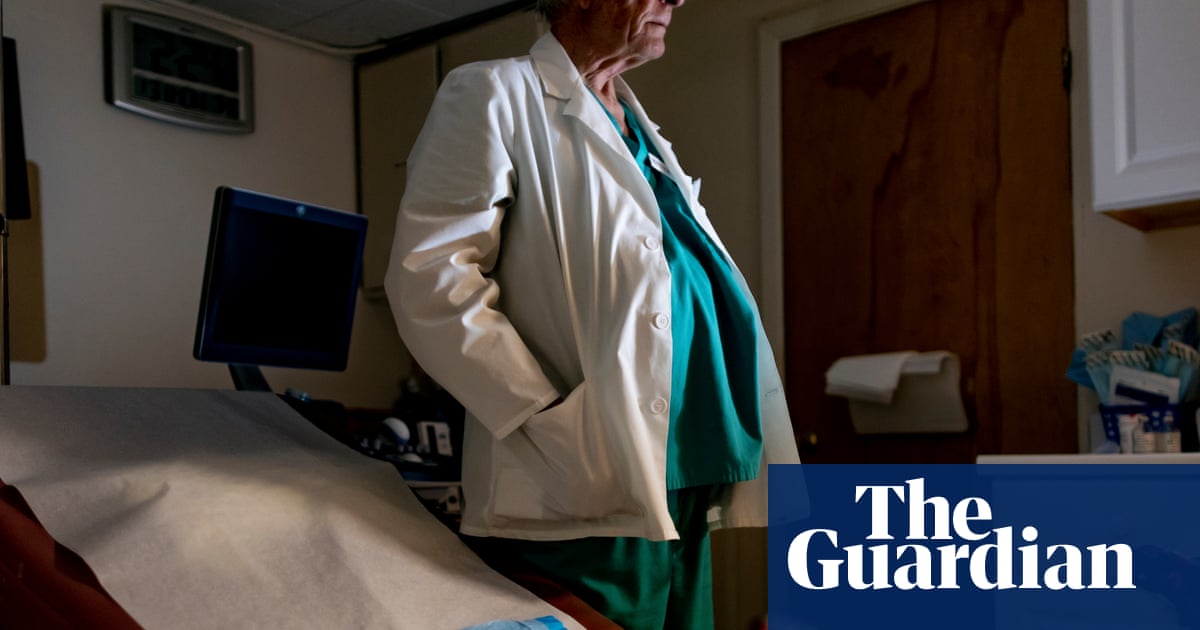A measles outbreak in rural west Texas has grown to 124 cases across nine counties, the state health department said on Tuesday, and 18 people have been hospitalized.
The outbreak is largely spreading in the Mennonite community in an area where small towns are separated by vast stretches of oil rig-dotted open land but connected due to people traveling between towns for work, church, grocery shopping and other day-to-day errands.
The Brownfield mayor, Eric Horton, a Republican, said he believed in the safety of the measles, mumps and rubella (MMR) vaccine because it has been used for so many years and has stopped measles from spreading in the US.
Brownfield is in Terry county, which has 21 cases.
“I’ve never seen it this close, ever,” Horton said. “I know that we’ve had a few outbreaks in years past but as far as right here, making national news, that is shocking.”
In neighboring eastern New Mexico, the measles case count stayed steady on Tuesday at nine. State public health officials said last week there was still no evidence New Mexico’s outbreak is connected to the one in Texas.
Tuesday’s count in west Texas has gone up by 34 cases since Friday. Cases continue to be concentrated in Gaines county, which has 80 infections, and Terry county, north of Gaines, where there are now 21.
Dawson county, to the east of Gaines, has seven; Yoakum county has five; Ector county has two; and Lubbock and Lynn counties have a case each. Martin county, also near Gaines, has three cases.
The state also said there were four cases in Dallam county, which is in the far corner of the state’s Panhandle area and a couple hundred miles north of Gaines county, and potential exposures in mid-February from an infected, contagious person who traveled to San Marcos, San Antonio and New Braunfels.
Texas health department data shows the vast majority of cases are among people younger than 18. Thirty-nine infections are in children younger than four and 62 are in children between five and 17 years old. Eighteen adults have measles and five cases are “pending” an age determination.
State health officials have said this outbreak is Texas’s largest in nearly 30 years. Cases have been concentrated in a “close-knit, undervaccinated” Mennonite community, a health department spokesperson, Lara Anton, has said – especially among families who attend small private religious schools or are homeschooled.
A Brownfield resident and father of three told the Associated Press that he was not too concerned about the outbreak.
“I only found out because it was a word-of-mouth thing,” said Dylan Cruz, 28, whose children are vaccinated against measles.
In New Mexico, all the cases are in Lea county, which borders Gaines county in Texas. The state health department has said people may have been exposed at a grocery store, an elementary school, a church, Nor-Lea hospital and a Walgreens in Hobbs, New Mexico.
Measles is a respiratory virus that can survive in the air for up to two hours. Up to nine out of 10 people who are susceptible will get the virus if exposed, according to the US Centers for Disease Control and Prevention (CDC).
Most children will recover from the measles if they get it, but infection can lead to dangerous complications such as pneumonia, blindness, brain swelling and death.
The MMR vaccine is safe and highly effective in preventing measles infection and severe cases of the disease.
The first shot is recommended for children between 12 and 15 months old and the second between the ages of four and six. The vaccine series is required for children before entering kindergarten in public schools nationwide.
Before the vaccine was introduced in 1963, the US saw some 3 million to 4 million cases a year. Now, it is usually fewer than 200 in a normal year.
There is no link between the vaccine and autism, despite a now discredited study and health disinformation.
New Mexico health officials are hosting vaccination clinics on Wednesday and Thursday.
In Texas, the CDC is providing “technical assistance, laboratory support and vaccines as needed”, the agency told the AP. But the state health department is taking the lead in the outbreak investigation.
Workers in the west Texas region are hosting regular vaccination clinics and screening efforts, and also said they were working with schools to educate people about the importance of vaccination and offering shots.
Dr Martin Ortega is a family medicine physician for Texas Tech Physicians of the Permian Basin-Odessa in in Ector county, where the county health department told the Odessa American that a child too young to be vaccinated caught the virus.
Ortega said the vast distances between people in west Texas were a unique challenge for health officials.
“It is something that puts us on a shared higher alert because we are interconnected and we don’t see ourselves as that far from each other,” he said.

 3 months ago
47
3 months ago
47

















































